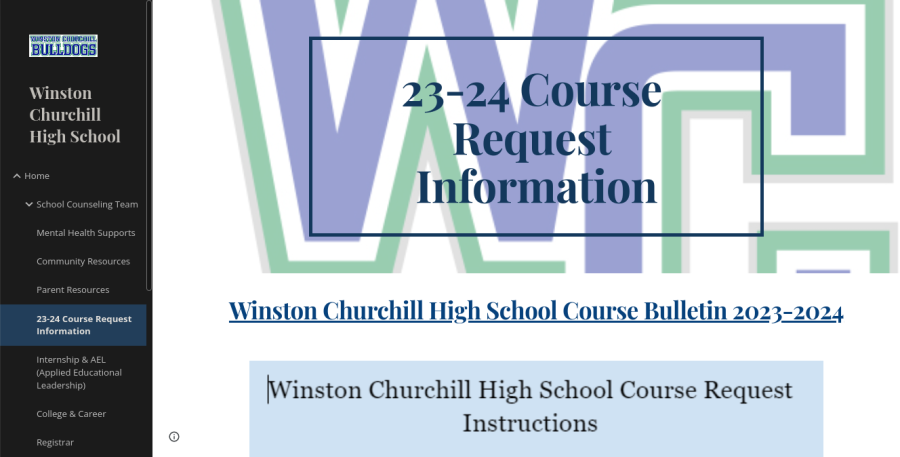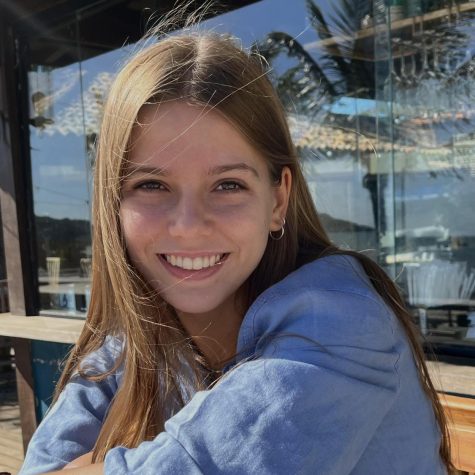WCHS students select new classes based on rigor and interests
When selecting their courses for the 2023 to 2024 school year, students can choose from the classes listed on the course catalog. WCHS provides students with a variety of options from which they can explore their interests.
January 24, 2023
As the 2022-2023 school year progresses, students now are making their class selections for the upcoming year. Throughout their years, WCHS students choose rigorous courses to challenge themselves as they see their peers doing, yet, adapt their classes in accordance to whichever grade they are taking on next.
“As I am going into 12th grade I knew I didn’t want to take classes that were extremely hard and time consuming but I also want to keep some rigor,” WCHS junior Siju Onadipe said. “Which is why I didn’t overload on APs but I [signed up] for a higher level math (Multivariable Calculus) so I can challenge myself and I will take a new AP in a science I haven’t done much of (AP Chem). And next to those I signed up for classes where I can still learn but also thoroughly enjoy my time as well.”
Although Onadipe plans on attempting to build a less challenging schedule for next year, his courses still show rigor. Multivariable Calculus (Calculus Three) is one of the most difficult math classes one can take in high school, and is considered a challenging course for college students as well. Moreover, AP Chemistry has been said to be one of the hardest APs with a heavy course load. Rather than deciding to enroll in only a light load of courses, as a rising senior, Onadipe is looking toward the future and how colleges will perceive his class choices.
“I definitely think my schedule is on the harder side compared to people around me because I am going to still be taking a couple of really tough classes,” Onadipe said. “I feel fine about it because although it may be hard it’s going to pay off when the time for college applications and acceptances come and I hopefully achieve what I’ve been working hard for. People around me definitely influenced the classes I chose because I’d say personally I have brilliant people surrounding me everywhere and it’s like a push to want to keep trying to do better every day.”
Rising seniors are still encouraged to take into consideration the difficulty of their future classes due to the workload that comes with college applications and the unavoidable senioritis. In general, WCHS students tend to still take more challenging courses.
“As many of the students at [WCHS] know, we are suggested to take more challenging classes than other public schools in the country, especially with APUSH in ninth grade,” WCHS freshman Riya Wedam said. “Personally, I like others pushing me out of my comfort zone to be the best academically I can be because I know I could not do it by myself.”
According to Collegeboard, AP United States History is commonly a junior class. Yet, WCHS students tend to take on strenuous courses earlier on to become well accustomed to these college level classes– so they take it in their freshman year. According to US News, about 90 percent of WCHS students take at least one AP course, yet the College Board Report states that from the graduating class of 2021, only 34.9 percent of students took at least one AP class.
“Compared to other people in my grade, I think that my schedule is [composed of] the average classes that most ninth graders take,” Wedam said. “I think that my classes for sophomore year may be more advanced than everyone else´s as I am taking AP Physics along with two other AP classes. [So] my schedule next year will be more advanced with 3 APs.”
As a rising sophomore, Wedam is trying to take on new challenges. WCHS lets students accomplish this though taking courses that are usually left for upperclassmen (ex. AP Physics). For upcoming juniors, their schedules are filled with more rigorous courses, a big jump from their sophomore year.
“I’d say my [current] schedule is about the same difficulty, or a little harder than those around me,” WCHS sophomore Sofia Noguera said. “That makes me kind of worried I won’t be able to handle my classes next year. Those around me definitely influenced what classes I chose to take because I tried to take classes my friends are taking so that we can study together and help each other out.”
Junior year is said to be the most demanding year of high school. From studying for the ACT or SAT to worrying about upcoming college applications, juniors are buried in stress. Students push themselves as much as possible in an attempt to look good for colleges. Noguera herself is planning on taking five AP courses in her junior year: AP Psychology, AP Chinese, AP Calculus BC, AP Language and Composition and AP World History.
“The atmosphere at [WCHS] influences my choices because there are certain classes where it is normal for a junior to take, so I was more inclined to take them,” Noguera said. “For example, most people at [WCHS] take [AP World History] junior year. Also, [the atmosphere influences my decision by] just knowing what classes people talk about and like at [WCHS], which teachers are good, which classes the teachers/staff recommend, and more.”
Students are influenced by those around them when they choose their classes. By receiving information on the difficulty level of a class, students can be more or less inclined to take it. For example, students who want a lighter schedule but still want to appear to be hard-working can take an AP that is considered easier — such as AP Human Geography. However, each person should have their individual reasonings and interests for the courses they select and not only choose classes that were encouraged by their peers.
“When signing up for courses people should choose ones that will challenge them everyday but would still be enjoyable and balanced,” Onadipe said. “People shouldn’t just take a course for validation, they should take courses that set up their future.”



